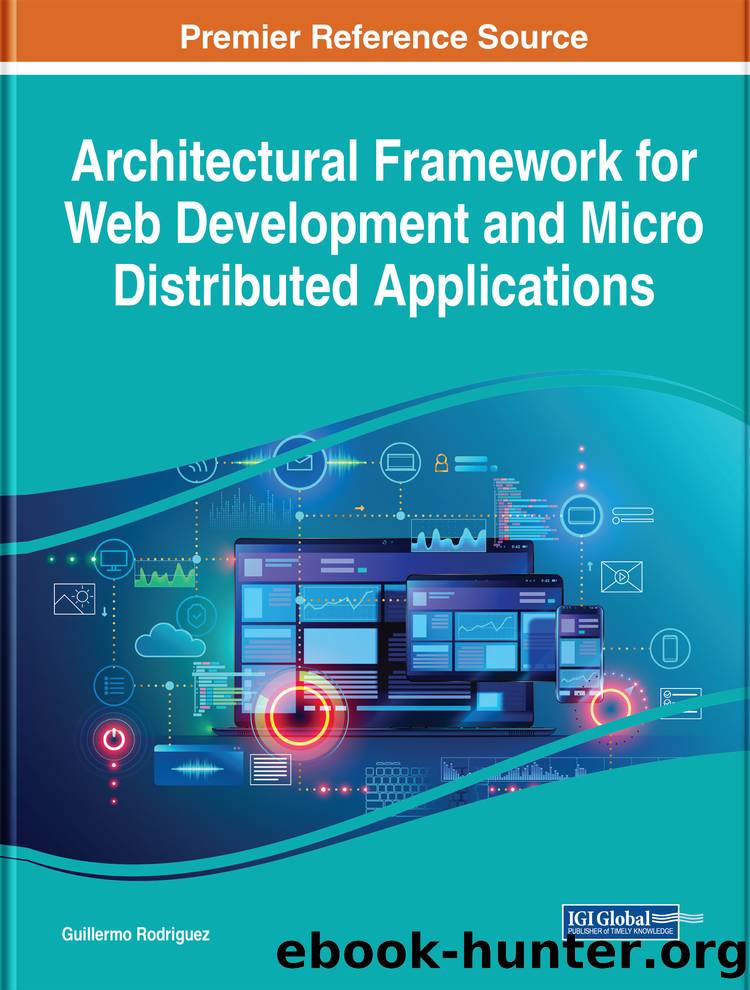Architectural Framework for Web Development and Micro Distributed Applications by Rodriguez Guillermo

Author:Rodriguez Guillermo
Language: eng
Format: epub
Publisher: Engineering Science Reference
What was presented in this chapter lays forth the positive argument that the dynamic for search engine indexing can follow a predictive model given the system attributes of the problem frame. In the case of the Yahoo search engine, it was found that a predictive formula could be derived with an accuracy of 77.78%. Given the argument that Yahoo presents search results in a random format at times it could therefore be argued that the formula derived in this body of work could have an even higher accuracy than was tabulated.
This body of work lays the groundwork for the argument that decision science can be leveraged to create a paradigm for the search space that is void of simple indexing of content as may be found through the use of TF-IDF and thus moves the argument forward in a different direction over search. This argument represents a significant step forward in the search space paradigm as it entails that a predictive model can be defined and followed, thus helping to clarify the previously subjective context of indexing of online content.
The search space can appear to be a complicated domain given the obscurity and vagueness of the search providers, but when systems theory is applied to the problem frame it becomes feasible for understanding to be brought forth. This reality that unfolds leads to better understanding of how content needs to be crafted to have a voice on the internet. The ramifications of what was determined here helps in understanding that content and link equity come together to drive value for the search providers and as such content must be created to leverage this benefit. This realization helps to clarify that there needs to exist a doctrine in web development that must yield a benefit from linkage structures. Web development as a consequence must be such so that it exists outside of the confines of a specific domain. Web applications must become domain agnostic and be distributable to the masses so that applications built can capitalize on the significance of the search engineâs algorithm. Web applications need to be able to leverage the rules that all are bound to and that are enforced upon each domain by the search engine providers. Applications built need to take the rules of engagement and harness them for the link equity which entails that a new breed of applications must be developed. This benefit will be brought forth because of Micro Distributed Applications (MDAs). By being able to take these applications and compartmentalize them to small JavaScript entities that may be given to anyone freely on the internet will allow the creators of such to create content on the web that will point to the desired domain and by doing so let the search engines inherently provide the domain with that needed equity that every domain owner covets.
By leveraging the rules of the game that the same search engine providers have set forth and that everyone is bound to will facilitate the creation of domains of authority and it will be these domains that will win the indexing race.
Download
This site does not store any files on its server. We only index and link to content provided by other sites. Please contact the content providers to delete copyright contents if any and email us, we'll remove relevant links or contents immediately.
Embedded Programming with Modern C++ Cookbook by Igor Viarheichyk(4182)
Implementing Cellular IoT Solutions for Digital Transformation by Dennis McCain(4079)
Linux Device Driver Development Cookbook by Rodolfo Giometti(4072)
Embedded Linux Development Using Yocto Project - Third Edition by Otavio Salvador & Daiane Angolini(3939)
TinyML Cookbook by Gian Marco Iodice(3840)
Simplifying 3D Printing with OpenSCAD by Colin Dow(2953)
TinyML Cookbook by Gian Marco Iodice & Ronan Naughton(2698)
Fusion 360 for Makers by Lydia Sloan Cline(2359)
Networking A Beginner's Guide by Bruce Hallberg(2347)
Hands-On Linux for Architects by Denis Salamanca(2176)
Computers For Seniors For Dummies by Nancy C. Muir(2148)
But How Do It Know? by J. Clark Scott(2120)
Raspberry Pi and MQTT Essentials by Dhairya Parikh(2092)
Arduino Project Handbook, Volume 2: 25 Simple Electronics Projects for Beginners by Geddes Mark(2054)
9781803246888-ENHANCING DEEP LEARNING WITH BAYESIAN INFERENCE by Unknown(2017)
Hack and HHVM by Owen Yamauchi(2009)
31 Days Before Your CompTIA A+ Exams (Shanette Luellen's Library) by Benjamin Patrick Conry(1973)
Hands-On Internet of Things with MQTT by Tim Pulver(1882)
MicroPython Projects by Jacob Beningo(1881)
